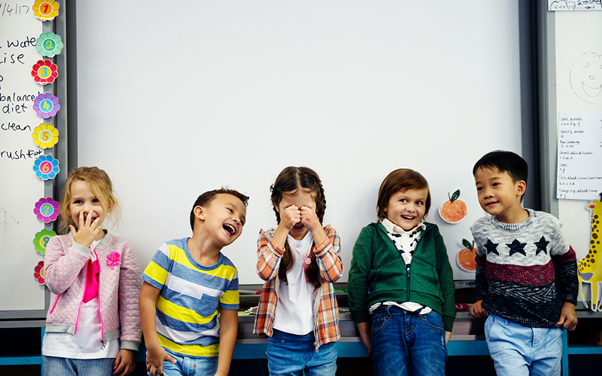Parents in Singapore continue opting for Chinese immersion preschools to give children a solid language foundation. Growing demand for bilingual proficiency pushes families to seek education environments delivering consistent Mandarin exposure from an early age.
Choosing a child care school in Singapore that offers preschool Chinese enrichment creates better developmental and academic outcomes. Many parents now understand that early immersion supports fluency, not just familiarity.
Mandarin Skills – Improving Through Consistent Daily Use
Chinese immersion preschool programs focus on daily Mandarin communication across structured and unstructured activities. Teachers use the language for storytelling, singing, and basic instructions. Children become fluent not through memorisation, but through continuous interaction.
Mandarin becomes part of their cognitive processing instead of remaining an academic subject. Learning vocabulary and sentence structure during play, art, or role-playing leads to faster retention. Children become confident speakers long before they begin formal lessons in primary school.
Parents see results quickly. Many notice their children responding in Mandarin at home after a few months of exposure. Language skills become more natural when developed in real-time settings instead of weekly classroom blocks. Parents with no Mandarin background also see immersion as a practical way to support bilingual education at home.
Bilingualism – Building Cognitive Flexibility and Focus
Chinese immersion preschools improve more than language ability. Learning through two languages sharpens memory, attention span, and multitasking skills. Children learn to shift between language systems while completing tasks, solving problems, or expressing emotions.
Studies show that bilingual children show improved executive function, enabling better focus and faster decision-making. Preschools offering Chinese enrichment allow children to build these advantages naturally, without formal pressure.
Singapore’s multicultural environment rewards bilingualism socially and academically. Children speaking Mandarin confidently tend to engage better with peers from Chinese-speaking households. Teachers also report that bilingual children show greater curiosity and cultural awareness during preschool discussions or group activities.
Enrolling children in a Chinese immersion preschool lets them develop linguistic and cognitive strengths simultaneously. Parents view this dual outcome as a critical advantage in Singapore’s competitive education scene.
Stronger Entry Preparation for Primary Education
Early exposure to Mandarin gives children a head start before entering primary school. The Ministry of Education curriculum requires students to learn Mother Tongue Language as a core subject. Students attending Chinese immersion preschools enter formal schooling with better vocabulary, listening skills, and oral fluency.
Preschool Chinese enrichment in Singapore includes basic reading and writing components aligned with upcoming primary content. Children transitioning from such preschools handle Chinese lessons with more confidence and less stress.
Schools offering this curriculum also promote smoother integration into bilingual streams. Children from Chinese immersion programs find Primary 1 less overwhelming, since they’ve already built a basic grasp of Mandarin syntax and phonics.
Parents wanting to reduce future tuition pressure find that early investment in immersion education reduces academic gaps later on. Teachers in primary school also find it easier to reinforce existing skills, instead of teaching everything from scratch.
Culturally Grounded Learning – Strengthening Identity
Chinese immersion preschools introduce more than vocabulary. Storybooks, songs, art projects, and daily routines often incorporate traditional Chinese values, customs, and celebrations. Children learn language alongside history, holidays, and cultural etiquette.
Cultural familiarity boosts confidence and identity formation. Children learning about traditions like the Chinese New Year or the Mid-Autumn Festival in Mandarin connect more deeply with the experience. They begin expressing ideas, emotions, and questions in both languages fluently and meaningfully.
Some child care schools in Singapore also integrate daily routines tied to Chinese customs, such as calligraphy or traditional rhymes. Parents appreciate these additions because they support values like respect for elders, discipline, and group harmony.
Chinese immersion programs give bilingual families or households with limited Chinese exposure a clear path to maintaining cultural ties. This resonates strongly in modern Singapore, where cultural preservation holds increasing weight.
Parents Seeking Long-Term Value from Early Education
Parents today view preschool as more than a care solution. Many approach early education strategically, choosing child care schools in Singapore offering long-term developmental benefits. Chinese immersion stands out for providing tangible value through language, culture, and cognitive enhancement.
These programs offer a head start in language acquisition without compromising creativity or play-based learning. Parents choose them because they produce results—whether fluency, school readiness, or cultural identity.
Families planning to enrol their children in SAP (Special Assistance Plan) schools or bilingual programs later also use immersion preschools to create a strong foundation. This early commitment saves time, reduces stress, and builds lifelong learning habits.
Explore how your child can benefit from early Mandarin exposure and bilingual development. Contact Odyssey The Global Preschool for a trusted child care school in Singapore offering strong preschool Chinese enrichment today.


Comments are closed.